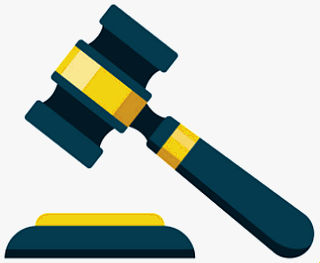Accredited InvestorsAltcoinAnatoli UnitskyAnti-Money Laundering (AML) In CryptoAPIArbitrageArtCoin TokenArticle DirectoryASICAuction Terminology GlossaryBasics of Stock Market InvestingBear MarketBest Crypto Payment Provider In the WorldBitcoinBlockchainBlockchain ConfirmationBlockchain Consensus MechanismBlockchain ForkBlockchain GlossaryBored Ape Yacht ClubBuild a Business That OutperformsBull MarketBuying SkyWay SharesByzantine Fault Tolerance (BFT) ExplainedCasascius CoinCentral Bank Digital Currency (CBDC)Centralized Crypto ExchangeCoinCoinsetCold WalletCollateralCommodity Futures Trading Commission (CFTC)Cross-Chain TechnologyCRUCrypto ExchangeCrypto GlossaryCrypto JokesCrypto Terms to KnowCrypto TickerCryptocurrencyCryptographyCryptojackingCryptounit BlockchainCryptounit GlossaryCryptounit ProgramdApp (Decentralized Application)Dead CoinDecentralized Exchange (DEX)Decentralized Finance (DeFi)Difference Between Bitcoin and EthereumDifferent Ways of Investing MoneyDigital CurrencyDistributed LedgerDo Your Own Research (DYOR)Dollar Cost Averaging (DCA)Dow Jones Industrial Average (DJIA)EncryptionERC-20ERC-721EthereumEvoScentFear Of Missing Out (FOMO)Fear, Uncertainty and Doubt (FUD)Fiat MoneyFNT Fintech CompanyGenesis BlockGlobal Unit PayGlossary of Banking TermsGlossary of Business TermsGlossary of Financial TermsHalvingHODLHot WalletHow Do I Start InvestingHow Rich is Satoshi Nakamoto?How to Create a BlockchainHow to Find Private InvestorsHow to Get Into FintechHow to Program Smart ContractsI Am Thrilled to Be a Part of This Global ProjectInitial Coin Offering (ICO)Initial Public Offering (IPO)Initial Token Offering (ITO)Innovation Basalt TechnologyInnovative Transportation TechnologiesInternational Bank Account Number (IBAN)Investing in Gold Mining StocksInvesting in Gold MiningJagerJoy of Missing Out (JOMO)Know Your Customer (KYC)LedgerLiquidity in CryptocurrencyMaker and Taker Fees in Crypto TradingMarket Capitalization (Market Cap)Meme CoinMetal Credit CardMetaMaskMillenials Now Have Access to Generational WealthMy Best Investment EverNew Digital EvolutionNFT GlossaryOff-Chain TransactionsOn-Chain TransactionsOpen Edition NFTPeer-to-Peer (P2P)Personal Loan GlossaryProbably the Best STO on the MarketProof of Stake (PoS)Real Estate Glossary of TermsReal Estate Investing GlossaryRebase TokenSecurities and Exchange Commission (SEC)Security Token ExchangesSecurity Token Offering (STO)Soulbound Decentralized Identities for Security TokensSoulbound ID Launch by Stobox Proves a SuccessSoulbound TokensStoboxStock Market GlossaryTestimonialsTether Platform and Token (USDT)UnitEx ExchangeUnitsky String TechnologiesUNTBUSDUValidatorWe Started Investing When We Were 25What are Blue Chip NFT?What are Blue Chip Stocks?What are Crypto Assets?What are Crypto Smart Contracts?What are CryptoPunks NFT?What are Digital Assets?What are Digital Collectibles?What are Gas Fees?What are Gas Wars?What are Hashmasks?What are Non Fungible Tokens?What are Non-Sufficient Funds (NSF)?What are Soulbound Tokens (SBT)?What are Stablecoins in Crypto?What are Transactions Per Second (TPS)?What are Utility NFTs?What are Utility Tokens?What Does Burning Crypto Mean?What Does Diamond Hands Mean?What Does Paper Hands Mean?What Does To The Moon Mean?What Does WAGMI Mean?What Happened to Satoshi Nakamoto?What is a 51% Attack?What is a Baby Boomer?What is a Backlink?What is a Banner?What is a Barcode?What is a Bid-Ask Spread in Crypto?What is a Block in Blockchain?What is a Block Reward?What is a Blockchain Address?What is a Blockchain Node?What is a Blockchain Oracle?What is a Blog?What is a Bond?What is a Bot?What is a Broker?What is a Business Accelerator?What is a Cash Cow?What is a Commercial Bank?What is a Commodity?What is a Con?What is a Credit?What is a Credit Limit?What is a Credit Rating?What is a Crypto Airdrop?What is a Crypto Bridge?What is a Crypto Scam?What is a Crypto Token?What is a Crypto Wallet?What is a Crypto Whale?What is a Crypto Winter?What is a Cryptocurrency Public Ledger?What is a Cryptocurrency Roadmap?What is a DAO?What is a Dark Pool?What is a Day Trader?What is a Dead Cat Bounce?What is a Default?What is a Derivative?What is a Digital Credit Card?What is a Fiscal Quarter?What is a Fungible Token?What is a Governance Token?What is a Grace Period?What is a Hard Fork?What is a Hot Wallet?What is a Hybrid Blockchain?What is a Hybrid PoW/PoS?What is a Joint Account?What is a Market Cap?What is a Merkle Tree in Blockchain?What is a Mining Farm?What is a Nonce? What is a PFP NFT?What is a POS System?What is a Prepaid Card?What is a Private Blockchain?What is a Private Key?What is a Public Blockchain?What is a Public Key?What is a Reserve Currency?What is a Ring Signature?What is a Routing Number?What is a Rug Pull in Crypto?What is a Safe Deposit Box?What is a Satoshi?What is a Security Token?What is a Seed Phrase?What is a Shitcoin?What is a Sidechain?What is a Soft Fork?What is a Spot Market?What is a State Bank?What is a SWIFT Code?What is a Tax Identification Number (TIN)?What is a Time Deposit?What is a Transaction Account?What is a Variable Interest Rate?What is a Virtual Assistant (VA)?What is a Virtual Card?What is a Virtual Currency?What is a Visa Card?What is a Whitelist in Crypto?What is a Whitepaper?What is Accounts Payable (AP)?What is AMA in Crypto?What is Amortization?What is an Accrual?What is an ACH Transfer?What is an Actuary?What is an Addendum?What is an Algorithm?What is an Angel Investor?What is an Annuity?What is an Asset?What is an ATM?What is an Atomic Swap?What is an Audit?What is an Avatar?What is an EIN?What is an Embargo?What is an Entrepreneur?What is an IDO (Initial Dex Offering)?What is an Interest Rate?What is an Internet cookie?What is an Investment Bank?What is an NFT Drop?What is an NFT Floor Price?What is an Ommer Block?What is an Orphan Block?What is an Outstanding Check?What is an Overdraft?What is Artificial Intelligence (AI)?What is B2B (Business-to-Business)?What is B2G (Business-to-Government)?What is Bartering?What is Bitcoin Dominance?What is Bitcoin Pizza Day?What is Blockchain Immutability?What is Blockchain Used For?What is BRICS?What is Business-to-Consumer (B2C)?What is C2C (Customer to Customer)?What is Capitalism?What is Catfishing?What is CFD Trading?What is Check Kiting?What is Cloud Mining?What is Communism?What is Content Marketing?What is Decentralization in Blockchain?What is DeFi in Crypto?What is Delisting?What is Depreciation?What is Digital Marketing?What is Diversification?What is Double Spending?What is Dumb Money?What is Dumping?What is Earnings Per Share (EPS)?What is Economics?What is Email Marketing?What is Equity?What is Etherscan?What is Fintech?What is Foreign currency?What is Forex?What is Fundamental Analysis (FA)?What is GameFi?What is Generative Art NFT?What is Gwei?What is Hard Currency?What is Hash Rate?What is Hashing in Blockchain?What is Inflation?What is Initial Game Offering (IGO)?What is Interest?What is Interest Income?What is Mainnet?What is Mastercard?What is Metaverse in Crypto?What is Mining in Cryptocurrency?What is Minting NFT?What is Mobile Banking?What is Money Laundering?What is NFT Alpha?What is NFT Metadata?What is NFT Rarity?What is NGMI Meaning?What is Nominal Interest Rate?What is Online Banking?What is Open-End Credit?What is OpenSea NFT Marketplace?What is Personal Identification Number (PIN)?What is Play-to-Earn?What is Polygon?What is Proof of Authority (PoA)?What is Proof of Work (PoW)?What is Public Key Cryptography?What is Pump and Dump?What is Quantum Computing?What is Refinancing?What is Retail Banking?What is Ripple?What is Sharding?What is Slippage in Crypto?What is Smart Money?What is Solvency?What is Soulbound ID?What is SSL?What is Staking in Cryptocurrency?What is Technical Analysis (TA)?What is Testnet?What is the Ask Price?What is the Better Business Bureau (BBB)?What is the Bid Price?What is the Dark Web?What is the InterPlanetary File System (IPFS)?What is the Gold Standard?What is the Lightning Network?What is the Prime Rate?What is the Sandbox?What is the Secondary Market?What is the World Bank?What is Tier 1 Capital?What is Tokenomics?What is TRC-20?What is Universal Banking?What is Unspent Transaction Output (UTXO)?What is Usury?What is Volatility in Crypto?What is Wash Trading?What is Web3?What is Whisper?What is XRP?What is Zero-Knowledge Proof (ZKP)?Who is Beeple?Who is Satoshi Nakamoto?Who is Vitalik Buterin?Why Tokenization is a Safe HavenWhy You Should Try Your Hand at Trading
What is Bankruptcy?
- Home
- Glossary of Banking Terms
- What is Bankruptcy?
Bankruptcy provides individuals or businesses with an opportunity to make a fresh start by absolving them of their unpaid debts.

At the same time, creditors have an opportunity to recover some of their funds based on the assets of the individual or business that are available for liquidation.
What is Bankruptcy?
Bankruptcy is a legal process that helps individuals, businesses, and other entities who are unable to pay their debts to obtain relief from their creditors. The process involves the distribution of the debtor's assets to creditors to satisfy their claims or the discharge of debts that cannot be repaid.
In the United States, bankruptcy is governed by federal law and is conducted in federal courts. The two most common types of bankruptcy for individuals are Chapter 7 and Chapter 13 bankruptcy.
Chapter 7 bankruptcy, also known as liquidation bankruptcy, allows debtors to eliminate most unsecured debts, such as credit card debt and medical bills. In exchange for the discharge of debts, the debtor may be required to liquidate assets to pay off creditors. Certain assets, such as a primary residence or personal property, may be exempt from liquidation.
Chapter 13 bankruptcy, also known as reorganization bankruptcy, allows debtors to restructure their debts and create a repayment plan. Under this type of bankruptcy, debtors can keep their property and assets, but must have a regular income to make the required payments. The repayment plan is typically structured over three to five years.
Businesses may also file for bankruptcy under Chapter 7 or Chapter 11 bankruptcy. Chapter 7 bankruptcy for businesses involves the liquidation of assets to pay off creditors, while Chapter 11 bankruptcy involves reorganization and restructuring of the business's debts.
It is important to note that bankruptcy is a serious decision that can have long-lasting consequences on a person's credit score and financial future. Before filing for bankruptcy, it is advisable to consult with a bankruptcy attorney or financial advisor to explore other options and determine the best course of action.
Bankruptcy and Cryptocurrencies
As cryptocurrencies gain popularity, they are also becoming an increasingly common topic in bankruptcy cases. This is because cryptocurrency holdings, like any other asset, may be subject to bankruptcy proceedings.
In the past, the question of whether cryptocurrencies could be considered assets in bankruptcy was a matter of debate. However, recent court rulings have made it clear that they are indeed assets and can be seized and sold by trustees in bankruptcy proceedings.
For individuals or businesses considering filing for bankruptcy, it's important to understand how cryptocurrencies will be treated. Here are a few key considerations:
Valuation of cryptocurrencies - One challenge in bankruptcy proceedings is accurately valuing cryptocurrencies. Unlike traditional assets, cryptocurrencies can be highly volatile, with their value changing rapidly. It can be difficult to determine an accurate value at the time of bankruptcy, as the value could change significantly before the assets are liquidated.
Treatment of cryptocurrencies in bankruptcy - When it comes to the treatment of cryptocurrencies in bankruptcy, they are generally treated similarly to other assets. If a debtor has cryptocurrency holdings, those assets may be seized and liquidated to pay off creditors. The proceeds from the sale will be distributed to creditors according to the bankruptcy plan.
Cryptocurrency exemptions in bankruptcy - Just like other assets, certain exemptions may apply to cryptocurrencies in bankruptcy. However, the rules around cryptocurrency exemptions can be complex, and it's important to work with an experienced bankruptcy attorney to determine whether any exemptions apply to your specific case.
Cryptocurrency fraud and bankruptcy - Cryptocurrencies have also been involved in cases of fraud, which can complicate bankruptcy proceedings. For example, if a debtor received cryptocurrency as part of a fraudulent scheme, those assets may be subject to seizure and liquidation. Additionally, if a debtor used cryptocurrency to hide assets or evade creditors, the bankruptcy court may take a closer look at those transactions.
Pros and Cons of Filing for Bankruptcy
Filing for bankruptcy can be a way for individuals or businesses to relieve themselves of the legal obligation to pay debts and protect their assets, but it also has drawbacks. It is essential to understand both the advantages and disadvantages before making the decision to file.
Pros:
- Enables debtors to emerge from default and start fresh
- Erases certain unsecured debts
- Prevents legal judgment
Cons:
- Leaves a negative mark on credit scores for up to 10 years for Chapter 7 and seven years for Chapter 13 filings, making it harder to obtain credit
- Collateral for secured debts may be seized
- Certain debts like child support are not eligible for discharge
It's important to note that bankruptcy is not a one-size-fits-all solution, and it should be considered a last resort. Before filing, it's crucial to weigh the advantages and disadvantages and consider alternatives such as debt counseling or negotiating with creditors. It's also recommended to seek the advice of a bankruptcy attorney to ensure you make an informed decision and navigate the process effectively.
The Bottom Line
Bankruptcy is a legal process designed to help individuals and businesses who are unable to pay their debts. While it can provide relief from overwhelming debt, it is important to understand the different types of bankruptcy and their consequences before deciding to file.
Related Articles

Arbitrage Trading
For instance, business mergers, acquisitions, or bankruptcy filings may fall under this category.

What is Delisting?
In addition to failing to meet listing requirements, a company's shares can also be delisted due to other factors, such as fraud, legal issues, or bankruptcy.

Why Tokenization is a Safe Haven
The recent bankruptcy of one of the largest cryptocurrency exchanges, FTX, demonstrated not only a careless approach to finance, but also a total lack of...
- Home
- Glossary of Banking Terms
- What is Bankruptcy?